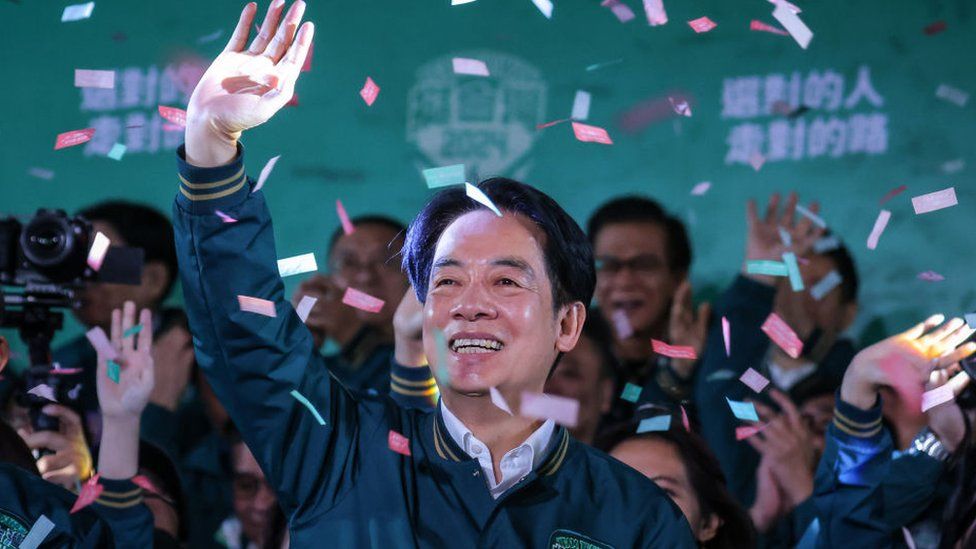ARTICLE AD BOX
 Image source, Getty Images
Image source, Getty Images
Mr Lai won 40% of the vote, beating his two opponents comfortably
By Tessa Wong
BBC News, Taipei
Taiwanese voters have chosen William Lai as their president in a historic election, cementing a path that is increasingly divergent from China.
The result is likely to anger Beijing, which calls Mr Lai a "troublemaker" for his views on independence.
China claims self-ruled Taiwan as its own. While it has called for "peaceful reunification", it has also not ruled out the use of force.
It had cast the Taiwan election as a choice between "war and peace".
Beijing's communist government also reviles Mr Lai's pro-sovereignty Democratic Progressive Party (DPP) which has ruled Taiwan for eight years. China has ramped up its military presence around the island, heightening fears of a possible conflict.
By winning an unprecedented third consecutive presidential term for his party, Mr Lai has broken new ground. In his first remarks after his opponents conceded, he signalled that this was an irreversible trajectory.
"The country will continue to walk the right path forward. We will not look backwards," he told the world's media in a press conference.
Later while addressing tens of thousands of ecstatic supporters on the streets of Taipei, Mr Lai characterised his win as a triumph of democracy.
"We've done it. We didn't let external forces influence our election. That's because we decided that only we can choose our president," he said. In the lead-up to the polls, Taiwan had accused China of attempting to interfere with the process.
But Mr Lai also had a message for China.
He told reporters he favoured more exchanges and dialogue over obstructionism and conflict, and called for peace and stability with Beijing.
At the same time, he added, he would "maintain the cross-strait status quo" - neither seeking independence nor unification with China - and pledged to "safeguard Taiwan from threats from China".
Mr Lai in the past said he supports Taiwanese independence - a red line for Beijing - though in recent months he stressed he would not pursue it if he became president.
Mr Lai's 40% of the vote put him comfortably ahead of Hou Yu-ih from the main opposition Kuomintang (KMT) party. Since 2000, Taiwan has alternated between the DPP and the KMT which is friendlier to Beijing.
Maverick politician Ko Wen-je from the Taiwan People's Party, a newcomer to Taiwan's political scene popular with young voters, gained a quarter of the vote.
Voters on Saturday also chose their legislature. The DPP has lost its majority with the opposition gaining ground, though no one party has enough seats to control parliament, according to Taiwanese media reports.
Observers say that an opposition-dominated legislature with a DPP president could mean the process of governing Taiwan would become more fraught.
Read more about the Taiwan election:

 1 year ago
64
1 year ago
64








 English (US) ·
English (US) ·